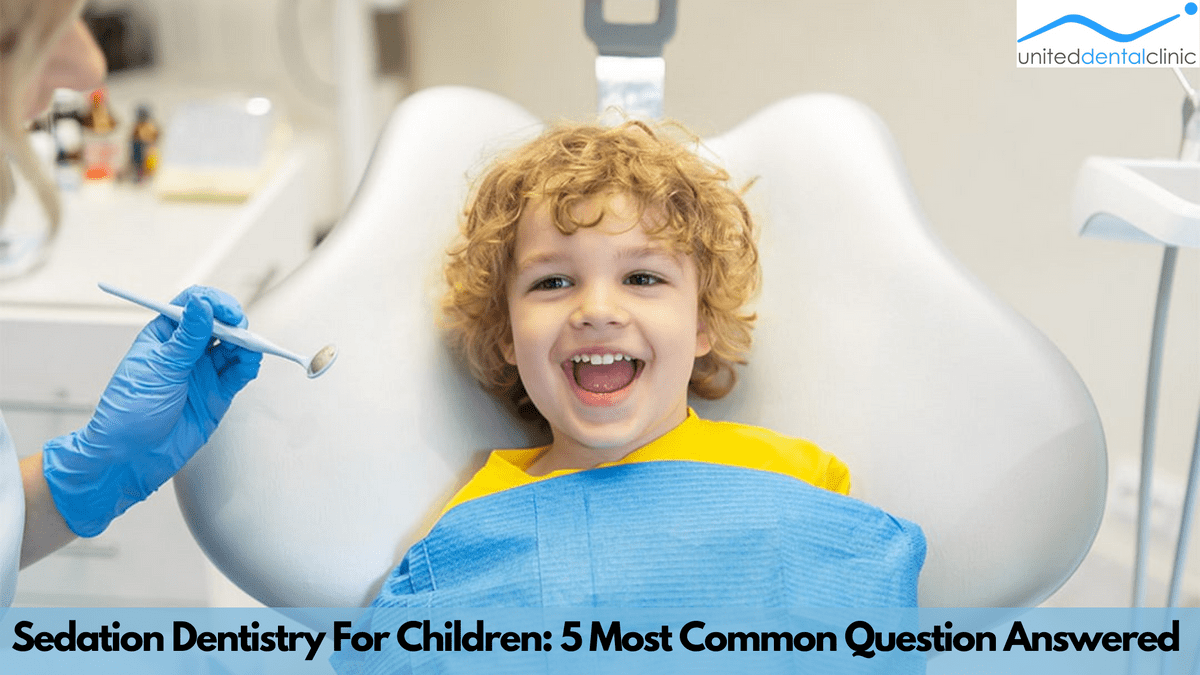
The fear of visiting the dental clinic for regular checkups, dental cleaning, or orthodontic dental treatment isn't uncommon among children.
Does your child become nervous when you take them to the dental clinic? This condition is known as dental anxiety.
The fear of the unknown and past bad experiences can trigger dental anxiety in both adults and patients. Fortunately, dentistry for children involves inhalation sedation that can ease your child's anxiety, relax them throughout the procedure and provide a pleasant dental experience.
Want to know more about inhalation sedation for children? Today's article explains everything.
Keep reading!
What Is Inhalation Sedation?
Inhalation sedation involves administering a mixture of oxygen and nitrous oxide. Typically, the nitrous oxide gas is known as 'laughing gas' or 'happy air.' After inhaling the mixture, your child will feel more relaxed, and the anxiety levels will drop.
A qualified dentist or anesthesiologist will place a small mask over your child's nose for them to gradually inhale the gas mixture. With inhalation sedation, your kid will remain awake and can interact with you or the dentist anytime during the procedure.
After a couple of minutes of gradually inhaling the sedation, you might notice your child feeling relaxed, expiring tingling sensation in the extremities (toes and fingertips), having a feeling of floating in the air, or simply giggling softly.
These reactions are entirely normal and are an indication that the sedative effect has set its course. This sedation dentistry will help your child feel comfortable.
When Inhalation Sedation Is Used For Children?
When children undergo dental treatment that might involve mild discomfort or trigger an anxiety reaction in your child, such as orthodontic dental treatment, it is recommended to use inhalation sedation.
Some children have a fear of injections or needles. In such cases, sedation therapy for children with inhalation will make them relaxed and less fearful before injecting local anesthesia for any procedure.
Here are a few examples when a pediatric dentist or orthodontist might suggest inhalation sedation:
- Minimize or eliminate dental anxiety and fear.
- Reduce untoward and sudden movements and reactions during a dental procedure that might turn harmful.
- Establishes and enhances your child's cooperation throughout the treatment
- Raise the pain sensation threshold
- Enhance comfort and tolerance levels for longer dental works where children might become impatient
What Are The Benefits Of Inhalation Sedation?
Sedation for children involving inhalation therapy has emerged as a popular approach for treating your child's dental concerns for various reasons, such as:
- Inhalation sedation is safe and can be administered for children from 4 or 5 years of age.
- The child remains awake but relaxed during the entire procedure and can efficiently communicate with you and the dentist.
- It helps your child to cope with treatment more easily.
- It relaxes your child's gag reflex during the treatment, which might have made your child uncomfortable and non-cooperative to the treatment.
What Can Be The Side Effects Of Inhalation Sedation For Children?
Inhalation sedation is a highly safe dental sedation process with no health-related risks or adverse effects on your child.
- In certain cases, your child might not get sedated entirely, especially when their nasal passages are blocked due to cold. They won't be able to inhale the gas mixture properly.
- Your child may experience slight dizziness. However, this effect will end once they stop breathing in the gas mixture.
- In extremely rare instances, your child may feel nauseous or vomit. Therefore it is suggested to take a light meal before your dental appointment.
What Guidelines Should You Follow Before Your Child's Dental Appointment?
It's normal to not know if the child will require inhalation sedation before their actual dental appointment. However, if dental treatment is scheduled, it is best your adhere to the following guidelines to ensure the best outcomes for the inhalation sedation:
- If your child is expiring a heavy cold with blocked sinuses and is unable to inhale through their nose properly, it is recommended to reschedule your dental appointment. Since blocked sinuses prevent the sedation from working adequately.
- Ensure that your child takes a light mean upto an hour before the scheduled dental procedure.
- A couple of days prior to the appointment, you can encourage your kid to practice inhaling through their nose while keeping their mouth open. This will help them get accustomed to the breathing technique used while wearing the mask during sedation.
- If you're pregnant, let the dental clinic staff or your dentist know in advance. Nitrous oxide can have adverse effects on your fetus.